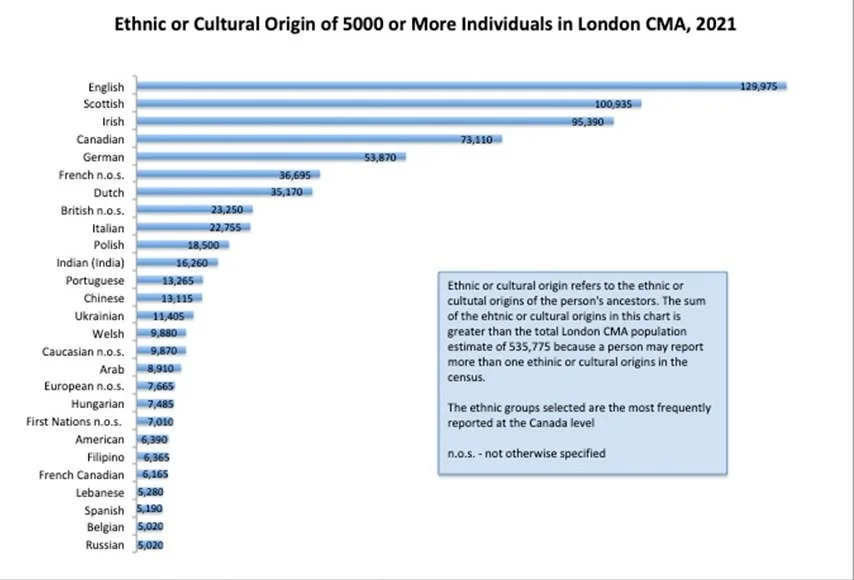London's Diversity Surge: How Our Growing Multicultural Mosaic Strengthens Our Community
Source: Statistics Canada. 2023. (table). Census Profile. 2021 Census of Population. Statistics Canada Catalogue no. 98-316-X2021001. Ottawa. Released March 29, 2023.
Cultural diversity is increasingly recognized as a crucial element of any modern society and London, without a doubt, is becoming a multicultural city.
According to the 2021 Census, for instance, 23 per cent of the population in the London Census Metropolitan Area, which also includes some surrounding communities in Elgin and Middlesex counties, is racialized or from a visible minority. Within the City of London, that number jumps to 29 per cent.
These percentages are higher than in 2016, when the racialized population was 16 per cent in the London CMA and 20 per cent in the City of London.
London and area’s population identify with about 240 ethnic or cultural origins. Among the ethnic or cultural origins of 5,000 or more persons, the biggest groups are those who have English, Scottish and Irish ancestry. The population of the top 10 ethnic or cultural origins are from Europe, except for the 73,110 who identify as “Canadian” as their ethnic or cultural origin.
Amongst those in non-European groups, India has the largest number of people, followed by those of Chinese and Arab origins.
Source: Statistics Canada. 2023. (table). Census Profile. 2021 Census of Population. Statistics Canada Catalogue no. 98-316-X2021001. Ottawa. Released March 29, 2023.https://www12.statcan.gc.ca/census-recensement/2021/dp-pd/prof/index.cfm?Lang=E (accessed April 13, 2023).
Multiculturalism has several positive impacts. It promotes diversity and allows for a variety of perspectives to be shared, bringing unique experiences, ideas and values. This allows for a more comprehensive understanding of the world around us and provides opportunities for personal growth and development.
There can also be economic benefits. A variety of businesses and investors can be attracted to the community, with associated economic growth and development. Competitive advantages also come with cultural diversity as diverse markets are accessed.
Moreover, multiculturalism also reduces prejudice and discrimination. When individuals are exposed to different cultures, they develop empathy, understanding and respect towards others, which reduces negative stereotypes and discrimination based on race, ethnicity, religion or nationality. Sharing of cultures and traditions can lead to an increased appreciation for diversity and promote social cohesion.
LMLIP Fact Sharing Work Group

